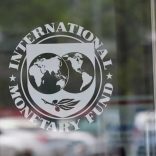Mitsui willing to boost investment in Mozambique
Government forecasts 5.3% growth – Mozambique

The Mozambican government forecasts economic growth of 5.3 per cent in 2018, Prime Minister Carlos Agostinho do Rosario told the country’s parliament, the Assembly of the Republic, on Monday.
This growth, he said, “will be sustained fundamentally by the performance of agriculture, trade, the extractive industry, and transport and communications. The dynamic of our economy next year will also be driven favourably by improved prices for our main export products, namely coal, aluminium, natural gas and titanium-bearing heavy sands”.
Full figures for 2017 are not yet available, but the prediction is for a growth rate of 5.5 per cent, considerably higher than the 2016 rate of 3.8 per cent.
Rosario predicted that the improved prices would allow Mozambican exports to reach 4.122 billion dollars in 2018. The forecast for this year is 3.463 billion dollars
Since imports are expected to remain much the same in the two years (5.453 billion dollars), the balance of trade should improve significantly. The trade deficit should shrink from 2.19 billion dollars in 2017 to 1.331 billion in 2018.
The government also predicts an increase in the government’s net international reserves from 2.181 billion dollars this month to 2.202 billion dollars at the end of 2018 – enough to cover six months’ imports of goods and non-factor services (excluding the imports of the foreign investment mega-projects).
As for prices, Rosario noted that inflation has fallen sharply. According to the National Statistics Institute (INE), inflation from January to November was 7.15 per cent. In the same period in 2016 it was 26.35 per cent.
The average 12 monthly inflation rate had fallen from 22.33 per cent in May to 16.65 per cent in November. The target for 2018, Rosario said, was that average 12 monthly inflation should be no more than 11.9 per cent.
Falling inflation, he added, should allow the interest rates charged by commercial banks (currently approaching 30 per cent) to fall. A fall in interest rates, Rosario said, “will allow access to finance, particularly for small and medium enterprises”.
As for the country’s debts, Rosario again insisted that the government will not pay any service on the commercial debts incurred with government guarantees until it has concluded negotiations with the creditors to bring those debts down to “sustainable levels”, and until the Attorney-General’s Office (PGR) has concluded its investigations.
He was referring to the over two billion dollars in loans granted in 2013 and 2014 by European banks (Credit Suisse and VTB of Russia) to the security-related companies Ematum (Mozambique Tuna Company), Proindicus and MAM (Mozambique Asset Management). The loans were only possible because the previous government, headed by President Armando Guebuza, issued illegal guarantees for the full amount. The guarantees smashed through the ceiling on guarantees established by the 2013 and 2014 budget laws, and violated a clause in the Constitution which states that only parliament can authorise such debt.
The PGR ordered an audit of the three companies, which was undertaken by Kroll Associates, generally regarded as the world’s foremost forensic auditing firm. So far the PGR has only published an executive summary of the audit report, although it certainly has the full report, which is circulating on the Internet.
The three companies are effectively bankrupt, and the government has made no repayments since early 2016. Rosario made it clear that the government will continue to default until the creditors restructure the loans.
The Prime Minister added that a recent decree on public debt imposes conditions on future guarantees, which can only be issued if the state is participating or interested in the project, and if there is an economic and financial viability study.













Leave a Reply
Be the First to Comment!
You must be logged in to post a comment.
You must be logged in to post a comment.